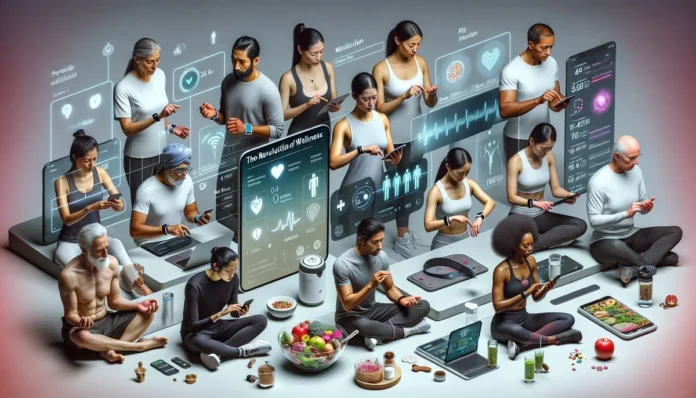Healthtech solutions are emerging as a game-changer, integrating technology with healthcare to address mental and physical wellness. Facing sleepless nights and anxiety has become a common challenge for many individuals in today’s fast-paced world. These digital innovations offer personalized care, helping users track their health metrics, meditate, and even manage chronic conditions with ease. As people increasingly embrace technology for self-care, the healthtech industry is rapidly transforming how we approach wellness.
The Rise Of Healthtech Solutions In Wellness
The healthtech sector has grown exponentially in the last decade, fueled by advancements in AI, machine learning, and wearable devices. These solutions are designed to address specific health concerns, such as mental health management, sleep improvement, and fitness tracking. Whether through apps that guide meditation or wearables that monitor heart rate and activity levels, healthtech is bringing healthcare into the palms of our hands.
One standout feature of healthtech is its ability to provide real-time feedback. For instance, apps like Calm and Headspace offer guided meditations tailored to individual stress levels, while wearables like Fitbit and Apple Watch help track sleep patterns and physical activity. This real-time data empowers users to make informed decisions about their health.
How Healthtech Supports Mental Wellness?
Mental health has gained significant attention in recent years, and healthtech solutions have stepped up to provide much-needed support. Apps focusing on mindfulness and therapy are bridging the gap between traditional healthcare and the growing demand for mental health resources. They offer accessible options for individuals who may not have the time or means to seek in-person therapy.
Moreover, cognitive behavioral therapy (CBT) apps like Woebot and Moodpath use AI to engage users in mental health exercises, providing immediate assistance during moments of stress or anxiety. These tools not only promote mental resilience but also encourage users to adopt healthier coping mechanisms over time.
Physical Health Tracking Made Easy
Wearable healthtech devices are revolutionizing how we monitor physical wellness. From tracking daily steps to monitoring heart rate variability, these devices offer a comprehensive view of one’s health. Brands like Garmin and WHOOP have introduced features that assess stress levels, recovery time, and even sleep quality, enabling users to fine-tune their routines for better overall health.
Healthtech is also playing a pivotal role in managing chronic diseases. Devices like continuous glucose monitors (CGMs) help diabetic patients track their blood sugar levels in real-time, while apps like MyFitnessPal assist with diet management by logging calorie intake and nutritional information. These tools foster a proactive approach to health management, reducing dependency on frequent doctor visits.
Personalized Care Through AI And Machine Learning
One of the most impressive aspects of healthtech solutions is their ability to offer personalized care. AI-driven platforms analyze user data to recommend customized wellness plans. For example, meditation apps can adjust their sessions based on user feedback, while fitness apps can suggest tailored workout plans depending on the user’s goals and current fitness level.
Additionally, AI chatbots embedded within healthtech apps provide 24/7 assistance, answering questions and guiding users through their wellness journeys. This level of personalization ensures that users feel supported and motivated to maintain healthy habits.
The Growing Popularity Of Healthtech Apps
The popularity of healthtech apps has soared, especially after the global pandemic underscored the importance of health and wellness. People now rely on these apps for everything from yoga sessions to virtual doctor consultations. This shift has also encouraged healthcare providers to integrate digital tools into their practices, making healthcare more accessible and efficient.
Startups in the healthtech space are continuously innovating, introducing features like voice-assisted wellness tracking and augmented reality (AR)-based fitness training. These advancements are not only enhancing user experiences but also setting new standards for the future of healthcare.
Challenges And Future Opportunities
While healthtech solutions are revolutionizing wellness, they are not without challenges. Data privacy and security remain significant concerns, as these apps collect sensitive health information. Companies must prioritize robust encryption and compliance with regulations like GDPR and HIPAA to ensure user trust.
Another challenge is accessibility. Although healthtech solutions are gaining popularity in urban areas, rural regions still face barriers due to limited internet access and lack of awareness. Bridging this digital divide will be crucial for the widespread adoption of healthtech.
Looking ahead, the future of healthtech is bright. As technology continues to evolve, we can expect even more sophisticated solutions that blend seamlessly into our daily lives. From virtual reality (VR)-based therapy sessions to AI-driven diagnostics, healthtech will undoubtedly play a central role in shaping the future of wellness.



